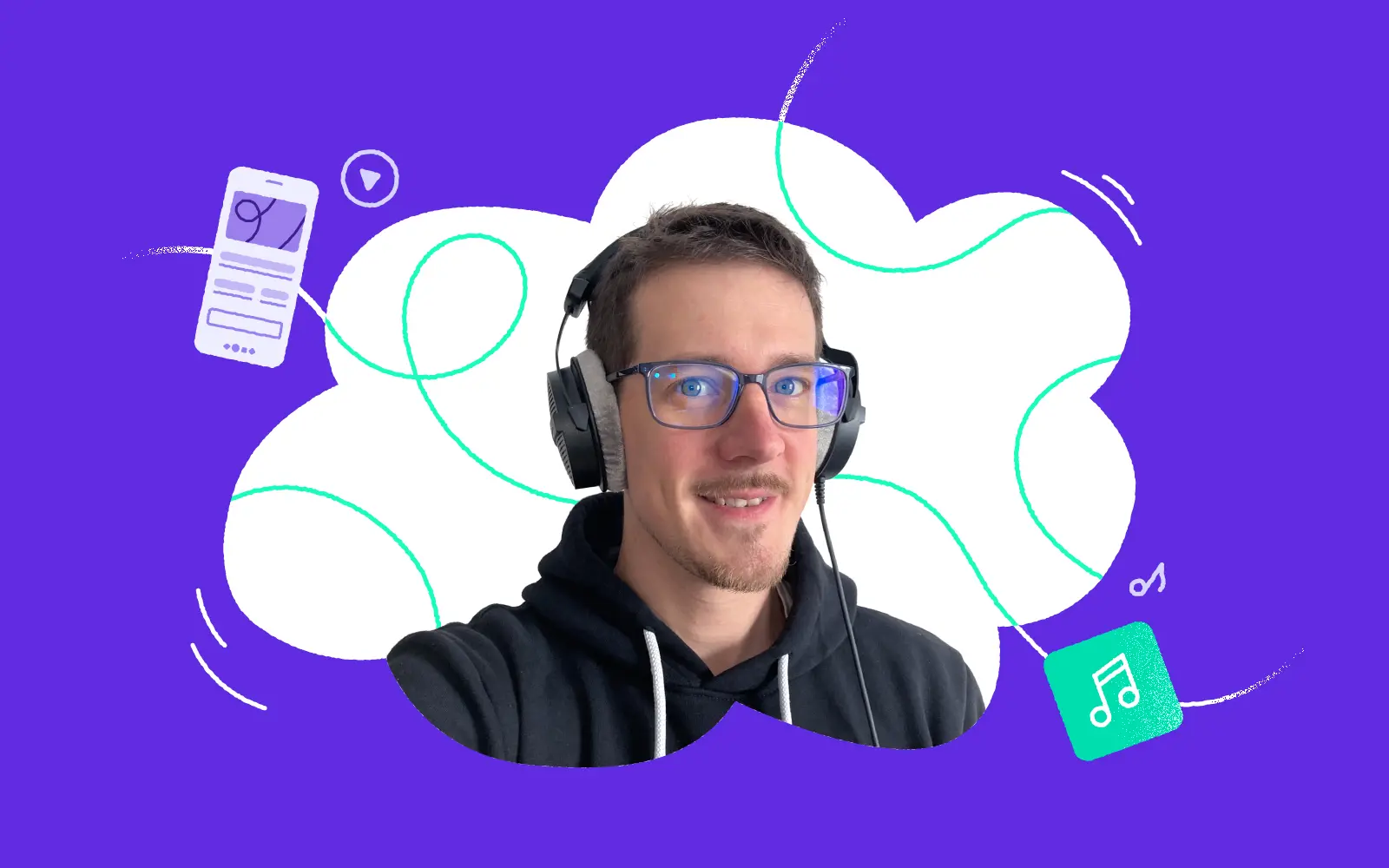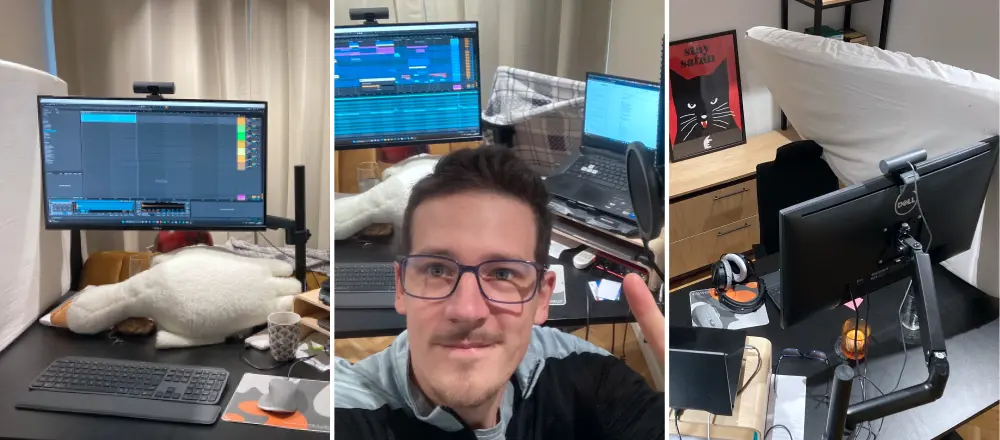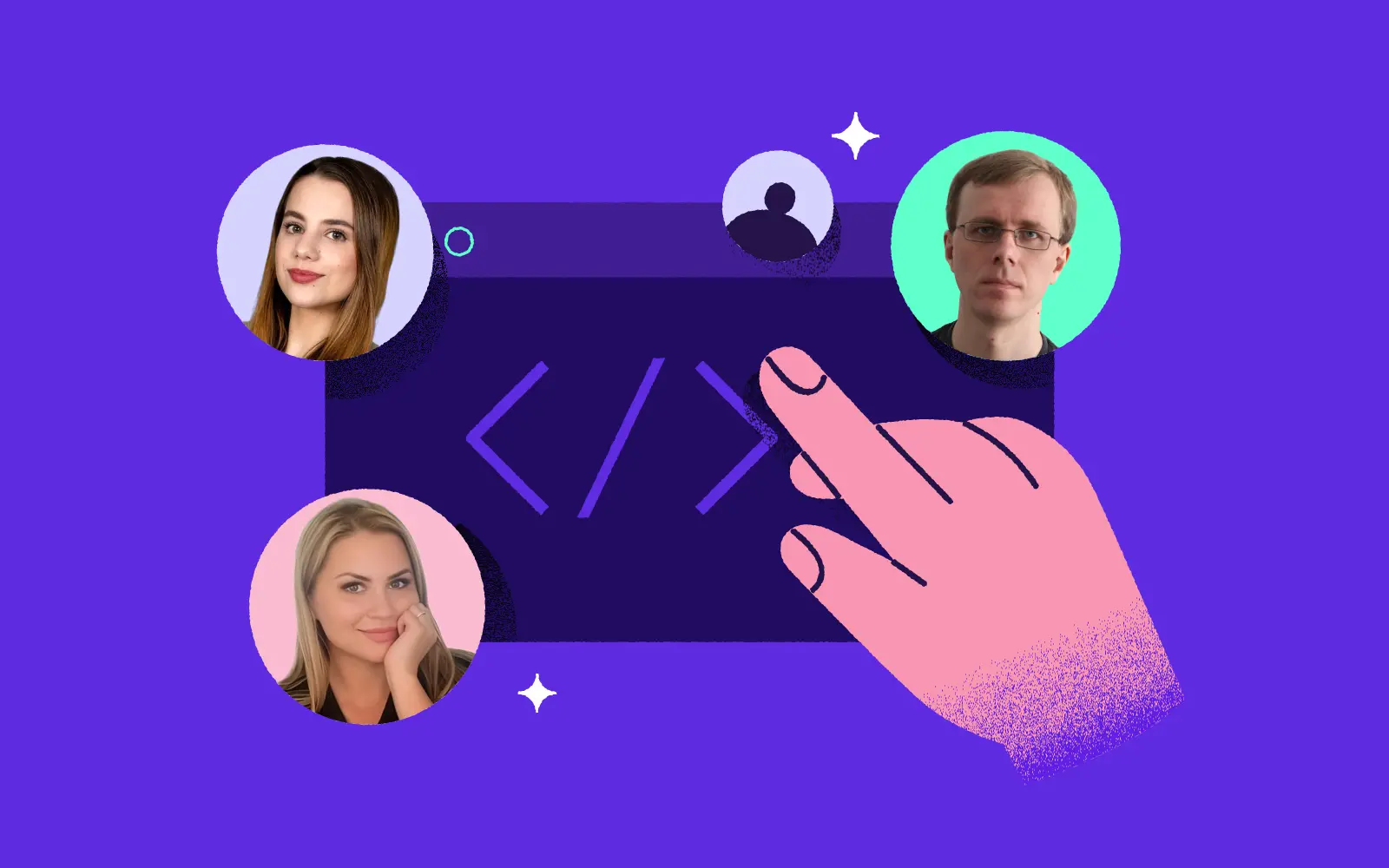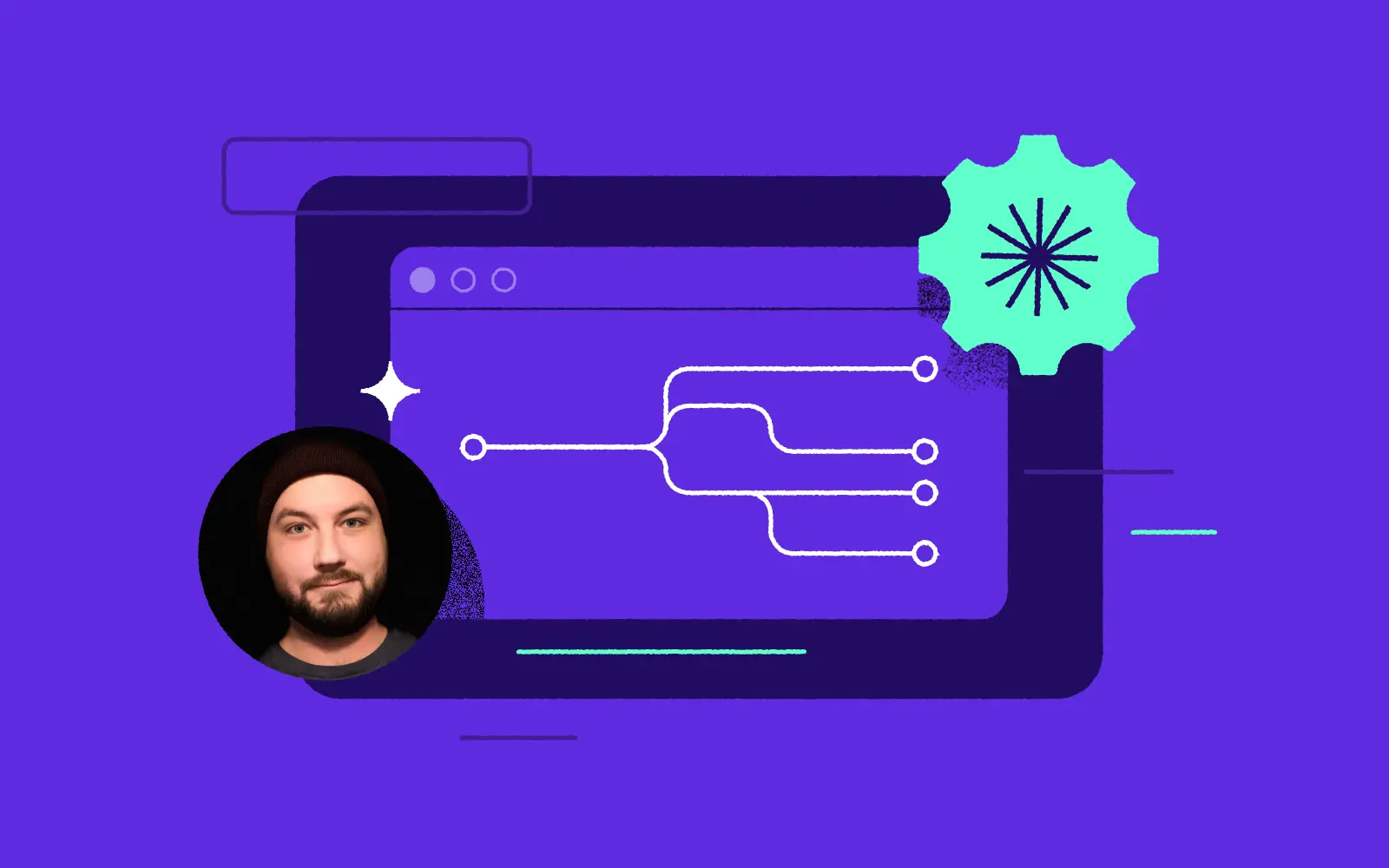
Welcome to our ‘Meet The Clouders’ series. Today, we'll be talking to Maciej Grątkowski, our Design Consultant and Product Design Team Leader, who has embarked on an exciting journey into home recording and music production. Maciej has combined his passion for music and design in a unique way. Let's delve into his journey and discover how he has adapted an agile mindset to pursue his musical aspirations.
You’re a Leader and Design Consultant at 10Clouds. What are your favorite aspects of your role?
Hi everyone! My role has evolved since my first days at 10Clouds, and I tell you, it was quite a journey. In a nutshell, now I’m connecting the design, business, pre sales and production interests together.
Since my early days in UX, I’ve seen design as a way to effectively communicate things. Either it’s a clear navigation towards the user’s goal through the app’s interface, asking stakeholders disruptive questions while forming the product vision, or informing the production team on how the design should behave and be implemented. It’s all about passing information to other people as smoothly as possible.
I’m happy to carry that perspective in my daily work. While focusing on pre sales and workshops we’re always trying to find what's most valuable in a client's product vision, how we might approach it within the real-world constraints and enhance the possibility of mutual success. Also as a servant-leader I’m taking the roadblocks off of our team members, letting them focus on turning their talents into fabulous designs and grow.

How does an agile mindset benefit your day to day work?
For me it’s not only about a way to structure the production, it’s also about the way you approach challenges. Working closely with startups and scaleups requires a dynamic response to users’ needs and the market situation, a mind opened for changes, keeping values and strategy in mind constantly to hold or pivot the priorities. Static plans wouldn’t last long in such environments, so being adaptive is the key.
Suddenly you start to slice the complex things into bits and pieces that could be taken up almost instantly, whenever you have time for them. You weigh their importance and prioritize them, remembering that something sudden might pop in and strike that delicate Jenga tower of your tasks to the ground. In a hurry? Look up for the previous work you’ve done in a reusable way and kick start another thing with a template. Pour on some secret sauce of faith in yourself and your teammates and, voila! You’re equipped to face the chaos and multiple things bigger than you.
So, back to the thesis, mindset might be the most agile thing you have in your toolbox. Both for professional reasons and side hustles as well.
Could you share some background on your musical journey and how you got started with home recording?
I've been involved in music since my high school days, starting with an amateur garage band. However, I never formally learned music. Over the years, I've been part of various music projects, ranging from prog-rock to punk and even sung poetry. Due to the pandemic and the responsibilities of fellow band members, our ability to meet and play together became limited.
Writing song lyrics and other forms has been a significant part of my creative expression for a long time. It has helped me both in crafting meaningful texts and integrating the world around me.
Always wanted to merge those stories into something independent and personal. Thus, some time ago I decided to explore the home recording possibilities on my own.
How did the agile approach play a role in setting up your home recording studio and developing your music?
At first glance, the challenge was Godzilla-sized. But hey, I’ve got day-to-day experience with handling so much complexity, it doesn't matter if the domain is far from IT. Embracing a lean mindset meany that I could overcome my inertia, initiate the project, and successfully manage it.
Here’s how I did it:
Learn
I started by finding guidance, a tutor that led me through the basics and shared the essentials. As the domain knowledge expanded, I’ve started to acquire the essential equipment and software. As a rule of a thumb, I selected things that were crucial and I was ready to understand them and use them consciously. Think of it as an MVP for the home studio.
Build
With my basic setup, I’ve started to produce my first tracks. Arrangement first, rhythm, drums, all the instrument tracks. The lyrics and vocals next. Effects applied, maintaining the frequencies, the volume. Wait, how’s the clipper different from the compressor? After some time, blood and sweat, the final outcome landed. Imperfect? Yes. Far from the industry standard? True. Still proud of it? Heck, yeah!
Measure
I’ve put some finished tracks online to the streaming services, to make them accessible to a broader audience. And as a design person with a UX background - I’ve asked for feedback. Just a few threads with careful listeners gave me enough insights to work on at least a few new tracks (backlog populated).
Knowing that a this stage it’s not about the astonishing quality, but the incremental progress, the first round of the Learn, Build and Measure iterative cycle took place.
This agile approach allowed me to make progress steadily and efficiently. It has minimized logistical challenges and allowed me to take ownership of the process.
I'm now able to plan collaborations where they bring the most benefit, not to have any specific outcome at all. Overall, I'm tackling something that once seemed complex and way too big with newfound confidence.
Could you share some key takeaways from your experience that could benefit others?
Absolutely. One important lesson is to ensure you are addressing the right problem. The restrictions imposed by the pandemic helped me validate that I didn't need a band and meetings to create something valuable. Also, don't hesitate to apply agile principles outside of IT. Complex tasks can often be broken down into smaller, manageable iterations. Lastly, you need to throw impostor syndrome out of the window. It's not about being perfect but about improving over time.
Have a listen to some of Maciej's music here.



